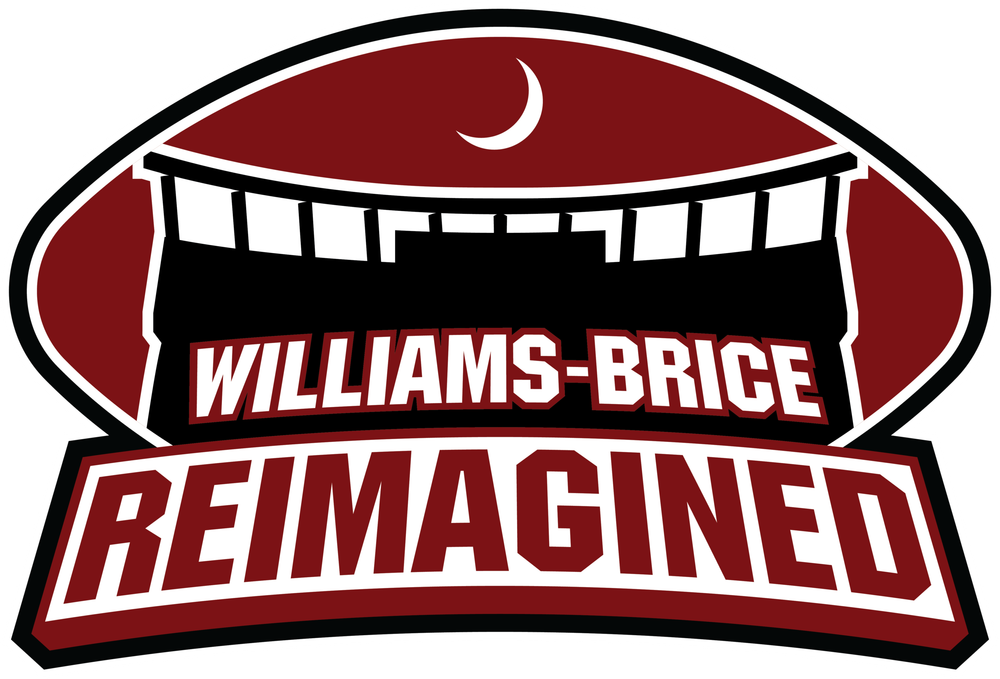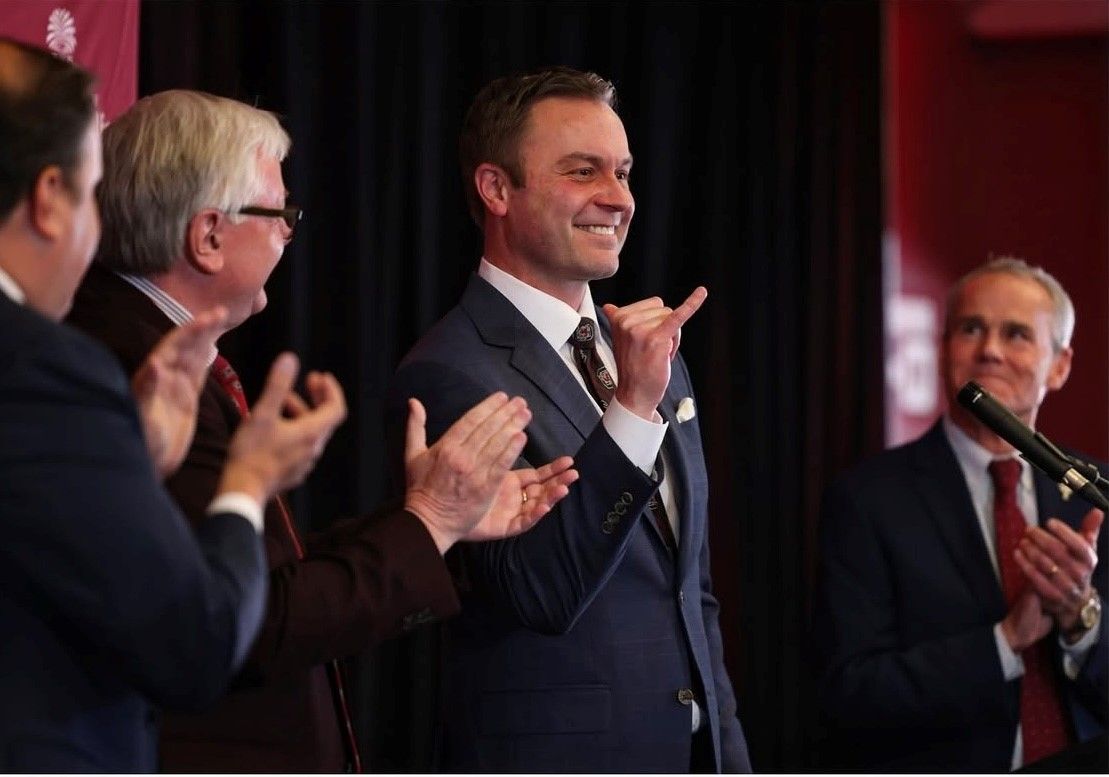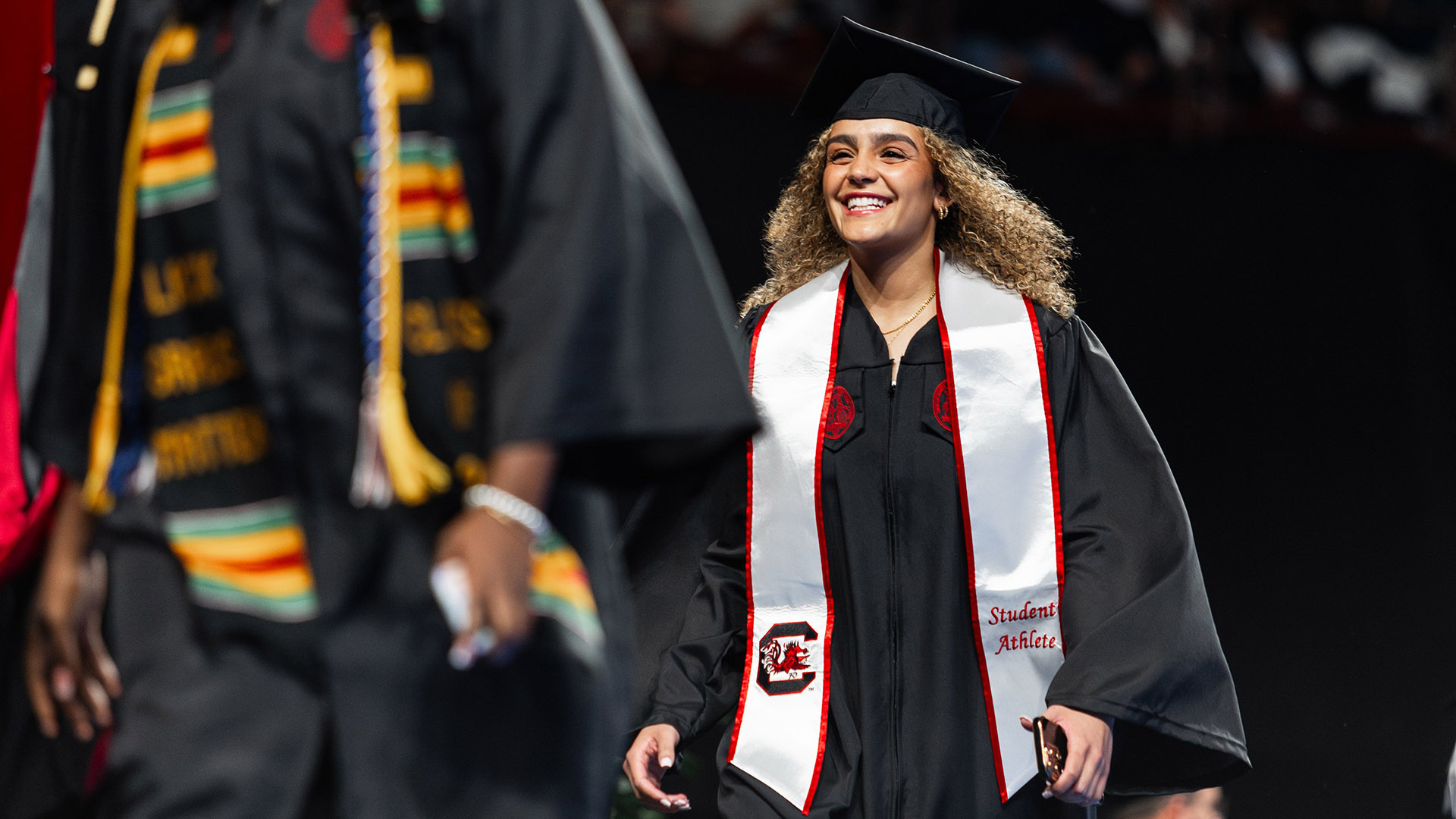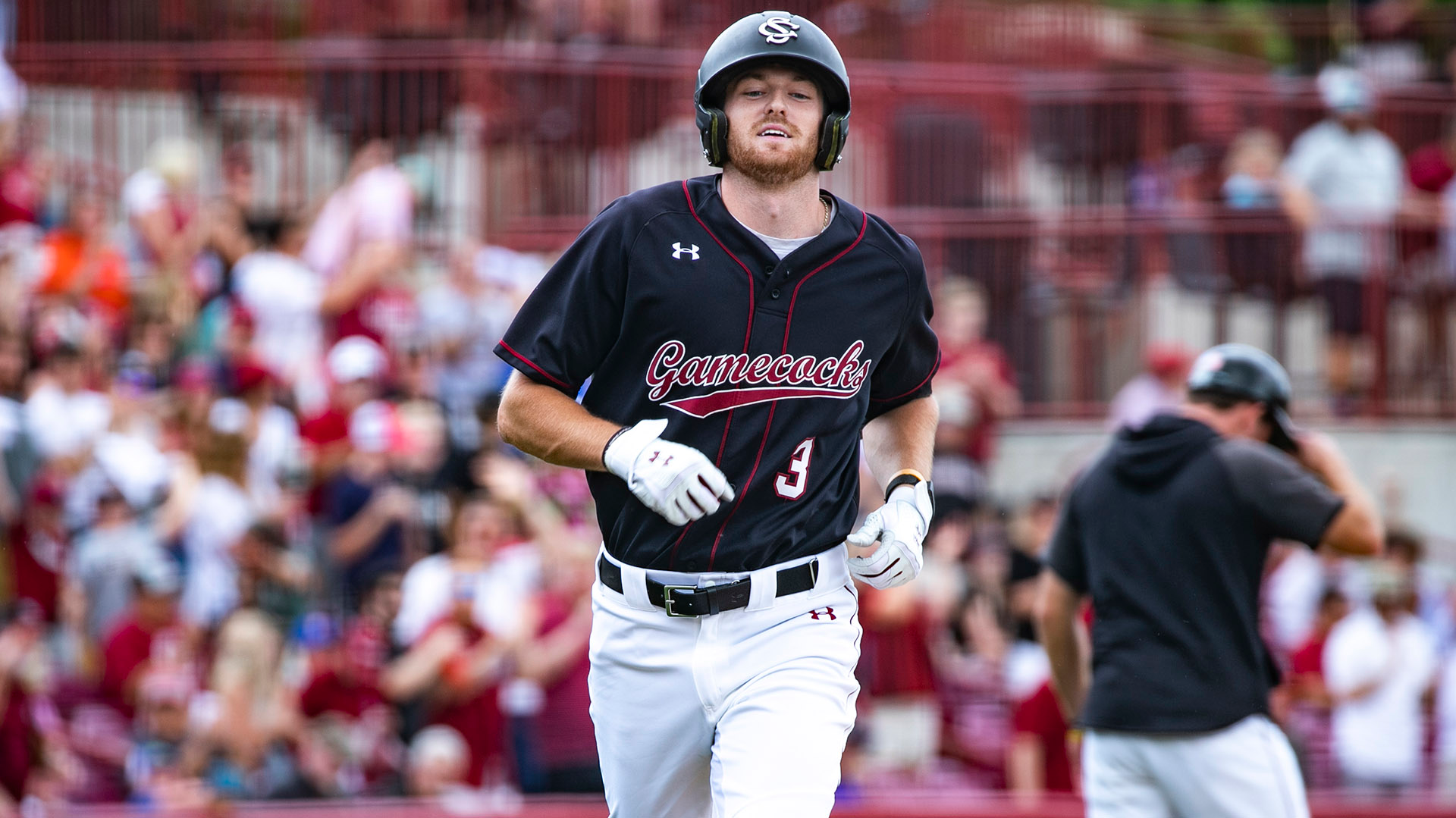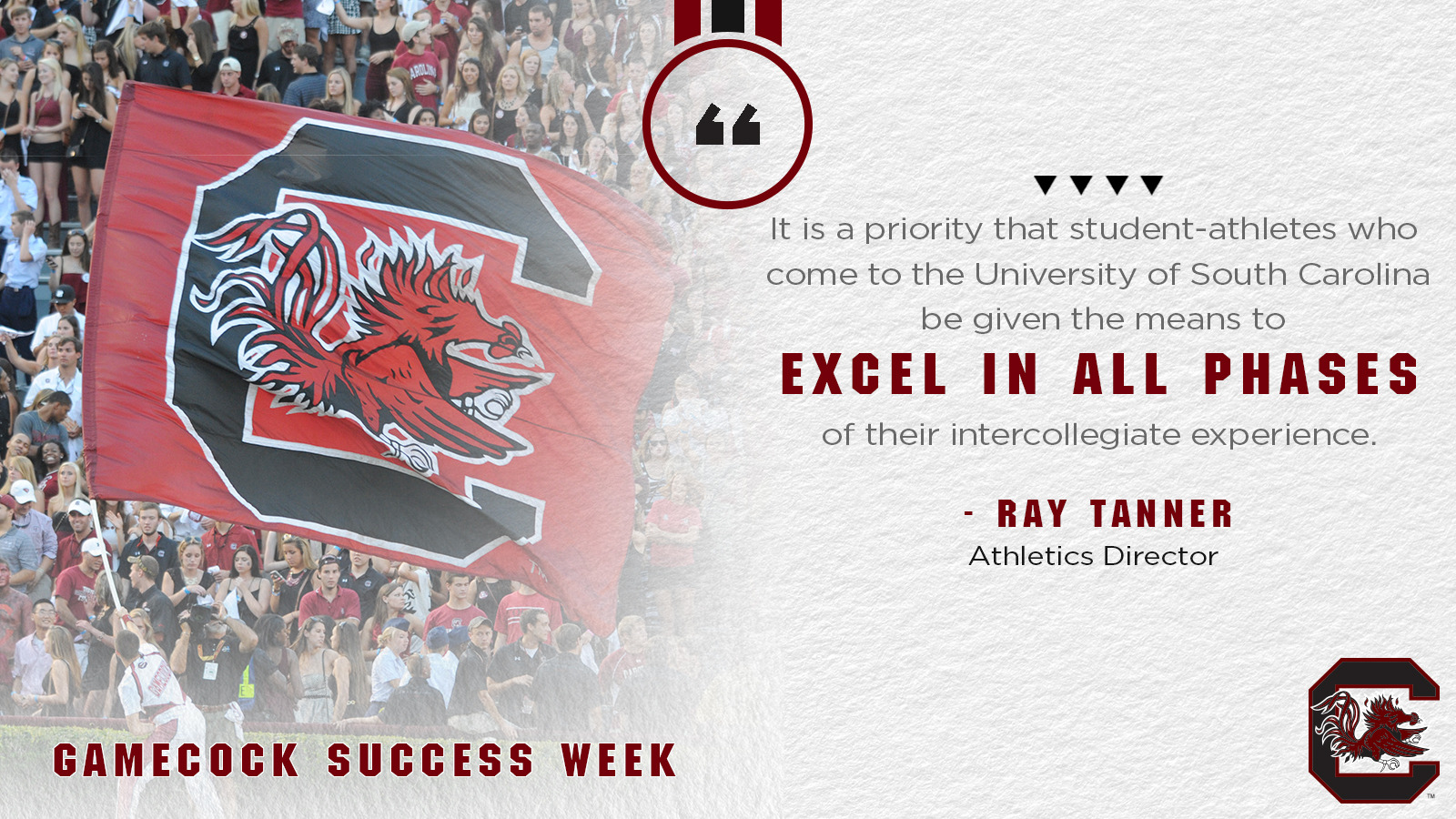
Gamecock Success Week: Providing a Championship Experience
June 25, 2018

South Carolina Athletics continues to build on the Gamecock Student-Athlete Promise. Among the recent enhancements to help create a championship experience in all phases of the student-athlete’s time at the University, the Athletics Department has been innovative in shaping its professional development/life skills program to provide more services that will serve the long-term needs of individuals, while also creating a more robust level of healthcare, and providing state-of-the-art accommodations in and out of the playing arenas.
“As part of our mission, it is a priority that student-athletes who come to the University of South Carolina be given the means to excel in all phases of their intercollegiate experience, whether it be on the fields or courts, in the classroom, or in the community,” Athletics Director Ray Tanner said. “We believe that academic and athletic success can be achieved, and that is the goal here.”

The Student-Athlete Development program, formerly known as the Life Skills program, has always been important to the development of the student-athletes in preparation for their lives after college and after their days of competition have ended, in addition to providing opportunities for the Gamecocks to serve their community. Director of Student-Athlete Development Megan Stoltzfus has been instrumental in expanding the depth and breadth of that approach.
“The direction we’re taking is focusing more on the student-athletes’ career and their professional development,” Stoltzfus said. “We spent a lot of time in the last year talking to student-athletes and taking the pulse of what they need each year in their development over their four years here. Freshmen are going to get financial education and budgeting basics right off the bat. We’re also shifting when we offer different networking opportunities and will now get started when they’re juniors instead of seniors so that they’re getting more time to build their network and make those professional connections. It’s a way to get them better prepared to know what they want to do once they leave here.”
South Carolina’s commitment to the welfare of Gamecock student-athletes goes beyond broad access to healthcare for their physical well-being, but also to meeting their mental and emotional health needs. Sarah Noll was brought on staff as Sports Wellness Coordinator for South Carolina’s student-athletes to help manage that.
“My goal is to make sure the student-athletes have comprehensive healthcare; treating their mental health as well as their physical health,” Noll said. “If coaches or support staff feel like a student-athlete needs individual counseling or medications, it will be funneled through me, where I will be making assessments, providing referrals, individual therapy, and educational seminars for groups to get them where they need to be.”

South Carolina also enlisted the services of mental performance coach Dr. Dave Ricciuti, a former U.S. Marine, who has an extensive background in training members of the military, was the head sport psychology teaching fellow at Harvard (2006-2007), and also took part in the NFL’s Coaching Academy for four years. “Dr. Dave” focuses on the mental aspect of athletics performance, and he was lauded for his work with the softball team this year in its historic season which resulted in a trip to the NCAA Super Regional.
“We’re really on the cutting edge in what we’re making available to our student-athletes, whether it has to do with mental health or sports science,” said head softball coach Beverly Smith. “As coaches we recognize the importance of the mental part of the game, yet we don’t always give it enough time because you don’t want to take away practice time. Having Dr. Dave proved to be so valuable for our team this year. In a sport of failure, just giving time to allow the players to get some tools on how to deal with failure and adversity, how to set a routine, and figuring out how to not let big situations get big on them, was really important, and it’s a tool they can use in the future. It’s something they can use in the work place.”
We have everything that you can possibly have to take care of our student-athletes.
John Kasik, Director of Sports Medicine
Last summer, South Carolina launched the Beyond Sports Professional Development and Summer Internship Program for its student-athletes. The program includes interviews, educational professional development programming, group projects, and internships with Beyond Sports community partners. One of the main goals is to provide student-athletes with a meaningful professional development and work experience, while also helping them to be better prepared for professional life after college.
“It’s still evolving and it’s growing,” Stoltzfus said of the program. “We had freshmen through graduate students apply for the program in the second year, so word is getting out there that they really need to be thinking about their career earlier for the time after they leave South Carolina. We’re exposing them to more than they’ve ever thought they would be exposed to.
“They’re not just internships where they go into a business and are filing papers all day. We had a student-athlete interning with Palmetto Health Hospital, and she was actually in an operating room during surgery, watching it while standing next to medical students. So, they’re having real world experiences.”
Beyond Sports also has weekly professional development sessions where the participating student-athletes can work through the growing pains of starting something new, and hear from visiting professionals in a variety of fields, who can also help the Gamecocks develop skills needed in any profession.
“It’s just been an awesome program,” said rising beach volleyball senior Shannon Williams. “They do their best to prepare you. I’ve been given so many projects that are really applicable to what I want to do in the future. They really tailor it to what your major is and what your interests are.
“Every professional development session that they’ve had for us has been really good. The `Mad City Money’ presentation from Founders (Federal Credit Union) was really good. We also had a panel discussion with former athletes who are now in different career fields, and they explained their transition process, which was super-helpful.”
There are also plans to launch a mentoring program within the next year, which could include former student-athletes as well. Initially, interested current student-athletes may be paired with members of the Athletics Department’s senior staff.
Additionally, the South Carolina football program has implemented the Beyond Football program for its student-athletes.
“We focus on the game of life,” said Director of Player Development Marcus Lattimore. “We want our guys to be prepared because it can be scary leaving the game if you haven’t done anything to prepare for that moment. It’s all about professional development, which means tapping in to all of these resources we have here, particularly, our alumni. They can mentor and be a sounding board for so many guys who don’t make it to the NFL. It’s about mentoring and bringing guys back to share their experiences.

“You have to find yourself outside of sports. When you cut those lights off after you’ve played football, you need to know who you are outside of that. There’s a lot more to life and being a human being than football. It’s about being a good person. It’s about serving others. I just want those guys to realize that.”
Lattimore also wants to focus on the mental health of student-athletes, which ties itself in with increased resources acquired by the athletics department in that area. South Carolina has prided itself in providing the best physical, medical and psychological care for its student-athletes, and continues to grow in that area.
“Our level of care always been good, but there are some areas that have pushed themselves to the forefront, especially in the area of mental health,” said John Kasik, Director of Sports Medicine. “I think we’re doing as much, if not more, than anybody else in the country when it comes to helping our student-athletes, not only with health care, but also in handling psychological issues and substance abuse issues.
“We have everything that you can possibly have to take care of our student-athletes. I think we have all of the resources that your child is going to need while they’re here; mentally, physically, and emotionally.”
South Carolina continues to enhance everyday life for its student-athletes so they can make the most of their academic and living experiences. The Dodie Anderson Academic Enrichment Center continues to be the hub for the Gamecocks in assisting their academic needs, while the 650 Lincoln residence, which also houses non-student-athletes, provides Gamecocks a comfortable and convenient place to call home while they’re in school.
South Carolina continues to provide the best competition and training facilities to allow the Gamecocks to compete in the most state-of-the-art venues for their respective sport. Recent upgrades include South Carolina’s new golf practice facility near Williams-Brice Stadium and the current construction of the Football Operations Center. Check out more on that in our next installment of Gamecock Success Week.


